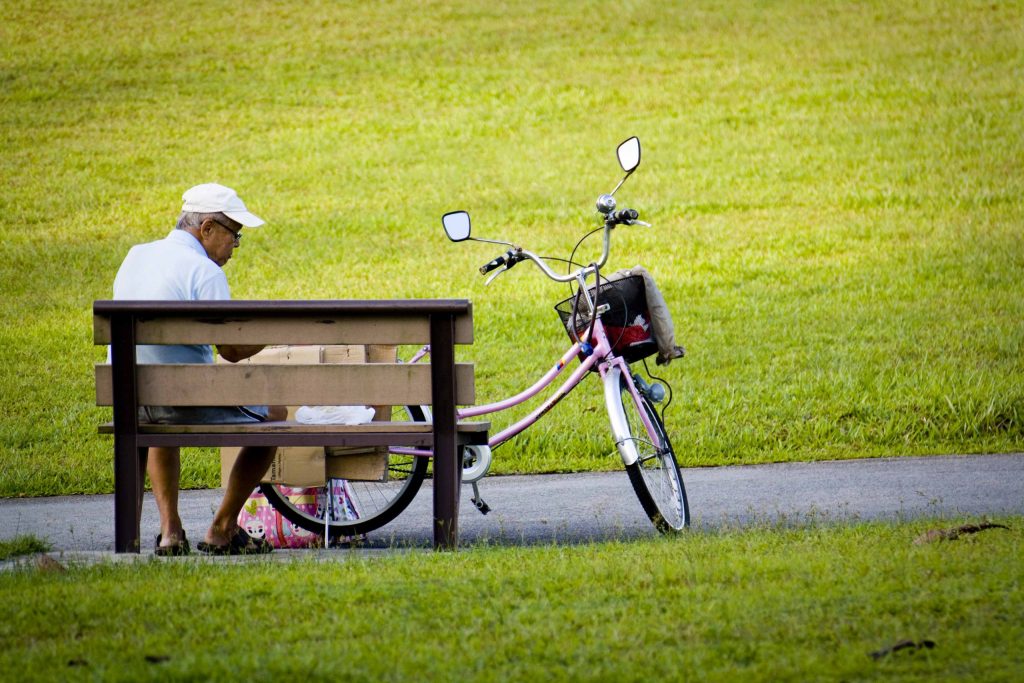Elderly People May Feel Lonely, Isolated Even While Living with Family
September 1, 2021

‘Social Disconnection and Living Arrangements among Older Adults: The Singapore Chinese Health Study’ (Gerontology, 2021), a study by Dr. Jon Barrenetxea, Dr. Yi Yang (both from Duke-NUS Medical School), Dr. An Pan (Huazhong University School of Public Health), Associate Professor Feng Qiushi (NUS Department of Sociology and Centre for Family and Population Research), and Professor Woon-Puay Koh (NUS Yong Loo Lin School of Medicine) examining the relationship between social disconnection and living arrangements of Singapore’s elderly population was recently featured in The Straits Times in ‘Elderly people may feel lonely, isolated even while living with family: Study’ (August 2021).
To measure social disconnection, the team interviewed 17,107 participants aged 61 to 96. Interviews included measurements of how much support an individual feels they receive from their friends and family, and the extent of their social participation. Results revealed that 6% of the 17,107 participants were found to be socially disconnected. One of the researchers’ notable findings was that 85.6% of those identified as socially disconnected were living with others. This suggests that merely living with other people is not enough to provide social support to prevent social disconnection, demonstrating an urgent need to expand community intervention programs to include senior citizens who are living with others.
Social disconnection, defined as a lack of physical, social, and emotional engagement with other people, leads to a range of health problems which include poorer cognitive function, dementia, depression, and higher mortality risk. Despite government efforts to build an inclusive, elderly-friendly society with community and state programs such as proximity housing grants for resale flat buyers and the ‘Many Helping Hands’ Approach to welfare and social assistance, social disconnection remains a health hazard among elderly people whether they live with others or alone.
In addition, the study provided more evidence to support the strong correlation between living alone and an increased risk of social disconnection. The researchers discovered that among the 14.4% of socially disconnected participants who were living alone, factors such as poor health were associated with social disconnection. Poor health reduced the capacity of an individual to maintain relationships with friends and family. Furthermore, individuals with poor health often feel a sense of responsibility to reduce the caretaking burden imposed on their family, disincentivising these individuals from social participation for fear of worsening their health.
Another notable finding was that among older adults who lived alone, men were twice more likely to be socially disconnected than women. The researchers explained that men’s traditional role as wage earners meant that they had smaller social networks and fewer social interactions. In addition, retirement further reduced their opportunities for social interaction, increasing the likelihood of social disconnection.
The study’s findings enable policymakers to identify groups within Singapore’s elderly population that are particularly at risk of social disconnection and have limited opportunities to seek support from state social assistance programs. Currently, community intervention efforts to encourage social participation and enrich the social world of Singapore’s elderly population are targeted at older Singaporeans living alone.
The researchers advocate for focusing the efforts of community outreach program on older men living alone and expanding the scope of these intervention programs to reach older adults who are in poor health regardless of whether they are living alone or with others. Targeted community intervention and assistance is especially important because, as the researchers noted, the risk of social disconnection has increased with the introduction of social distancing measures during the COVID-19 pandemic. Identifying individuals at risk of experiencing social disconnection will be even more urgent in the medium term as Singapore and its policymakers prepare themselves to face the socioeconomic consequences of a rapidly ageing population and a shrinking workforce.
Following from their previous research, the SG70 Towards Healthy Longevity Cohort study, led by Prof. Koh in collaboration with A/P Feng, other scientists within NUS, and other research institutions, is the country’s next step in examining the biological and socioeconomic factors that prevent Singaporeans across the three major ethnic groups from ageing healthily and productively. The research team will recruit 3,000 participants comprising of the three major ethnic groups in Singapore aged of 65 to 75, as this age group has been identified as the vulnerable period where the average Singaporean may transit from good health to poor health, and the team will study this ageing process in the participants for the next 10 to 15 years. The SG70 cohort study will gather and analyze scientific evidence that will inform future intervention studies, aimed at promoting healthy ageing and maintaining a good quality of life.
Read ‘Elderly people may feel lonely, isolated even while living with family: Study’ in The Straits Times here!
The research was also reported on in Zaobao here!
‘Social Disconnection and Living Arrangements among Older Adults: The Singapore Chinese Health Study’ (Gerontology, 2021) can be accessed here!
